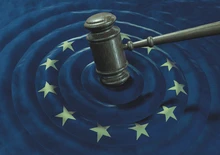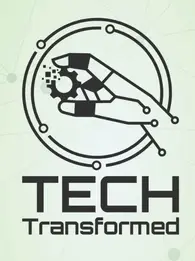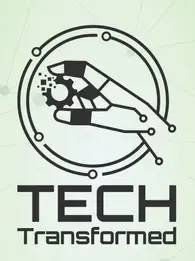
Microsoft has laid off an entire AI ethics and society team responsible for ensuring its AI developments remain, ethically responsible and sustainable.
The corporate slashing, as reported by platformer, is part of the recent round of layoffs that saw 10,000 employees axed from the tech giant as it braced itself for a fall in revenue caused by the looming recession.
It comes amid the company’s push to expand its integration of AI tools into multiple Microsoft services including Bing Search, using OpenAI’s chatbot ChatGPT as its blueprint.
The tech giant has so far invested $11 billion into its partnership with the AI research group, moving resources over to its own AI teams as it seeks to benefit from recent advancements in generative AI.
While Microsoft still maintains an active Office for Responsible AI, which is tasked with creating regulations and principles to govern its s AI initiatives, its ethics and society team ensured these principles were reflected in all products and services.
In a statement, the tech behemoth maintained that its overall investment in responsible AI integration is increasing despite the recent layoffs.
“Microsoft is committed to developing AI products and experiences safely and responsibly, and does so by investing in people, processes, and partnerships that prioritise this,” the tech firm said in a statement.
“Over the past six years we have increased the number of people across our product teams and within the Office of Responsible AI who, along with all of us at Microsoft, is accountable for ensuring we put our AI principles into practice. […] We appreciate the trailblazing work the Ethics & Society did to help us on our ongoing responsible AI journey.”
AI without principles
The move calls into question Microsoft’s commitment to ensuring its product design and AI principles are closely intertwined at a time when the company is making multiple of its AI tools available to the mainstream.
Former employees note that the ethics and society team played a critical role in ensuring that the company’s responsible AI principles were actually reflected in the design of the products that ship.
“People would look at the principles coming out of the office of Responsible AI and say, ‘I don’t know how this applies,'" one former employee revealed. “Our job was to show them and to create rules in areas where there were none.”
The team recently designed a role-playing game called Judgment Call that helped designers envision some of the potential dangers that could result from AI and discuss them during product development.
Once made up of 30 members, it was cut to 7 staff following the first round of layoffs in January, with members moved to other AI departments.
Microsoft's decision to lay off its ethical AI team raises concerns about the future of responsible AI.
Will this move benefit their partnership with OpenAI, or compromise the ethics of their AI products? #AIethics #OpenAI #technews #Microsoft
— Sahil Sachdeva (@sahilsachdevaaa) March 14, 2023
In a meeting with the team following the layoffs, John Montgomery, corporate vice president of AI told employees that company leaders had instructed them to move swiftly.
“The pressure from [CTO] Kevin [Scott] and [CEO] Satya [Nadella] is very very high to take these most recent OpenAI models and the ones that come after them and move them into customers' hands at a very high speed,” Mr Monegomery said according to audio obtained by Platformer.
Some members of the team pushed back: “While I understand there are business issues at play, what this team has always been deeply concerned about is how we impact society and the negative impacts that we've had. And they are significant,” one employee said.
Five months later, on March 6, the remaining 7 employees were cut and the ethics and society team was wiped out entirely.
The move, according to one employee leaves a foundational gap in the holistic design of AI products.“The worst thing is we’ve exposed the business to risk and human beings to risk in doing this,” they explained.
Microsoft Caught up in the AI race
Microsft's internal conflict highlights an ongoing tension for tech giants that build divisions dedicated to making their products more socially responsible.
While ethics teams help product teams anticipate potential misuse of technology and fix any problems before they ship, they also slow down the production process of these technologies.
We had a conversation about the worrying trend of AI tools like deepfakes and chatgpt. And how you really can't automatically trust any photos or videos you see on the internet anymore.
My husband said Microsoft fired their entire AI ethics teams.— Flora (@flora_38657) March 14, 2023
In 2020 Google fired ethical AI researcher Timnit Gebru after she published a paper critical of the large language models that would explode into popularity two years later.
The controversy lead to the departures of several more top leaders within the department and diminished the company’s credibility to respond to issues surrounding AI ethics and principles.
With the AI race now in full swing, former members of Microsoft’s ethics and society team say the tech giant has become focused on shipping AI tools more quickly than its rivals, and less interested in the long-term thinking that the team specialised in.
To read more about the AI race, visit our dedicated AI in the Enterprise Page.
When it relaunched Bing with AI, the company told investors that every 1 per cent of the market share it could take away from Google in search would result in $2 billion in annual revenue.
That potential explains why Microsoft has so far invested $11 billion into OpenAI and is currently racing to integrate the startup’s technology into every corner of its corporate empire.
It appears to be having some early success. The tech giant last week Bing now has 100 million daily active users, with one-third of them new since the search engine relaunched with OpenAI’s technology.
But, Bing AI’s AI’s early feats have also been clouded by controversy. The chatbot has made headlines recently due to its bizarre and sometimes outright aggressive responses to certain prompts, which led some users to believe the AI was sentient.
As Microsft, Google, and Meta accelerate their AI development, Big Tech finds itself faced with a dilemma where the speed of deployment of AI is hindered by the ethical risks associated with the technology.
The economic climate is uncertain, with inflation and a potential recession on the horizon. How are you navigating the impact of the cost of living crisis upon your employees? The companies that will excel are those that have a strong purpose and look to future growth opportunities once the storm has passed. Technology is constantly evolving; what does the dawn of the metaverse and generative AI mean for your strategy?
Business Innovation Summit tackles the pressures affecting leaders at global companies. Taking place between March 28, the summit will highlight organisations that are innovating and daring to be different and give attendees the confidence to navigate the challenges to come. Over 60 influential speakers will also share how they are building back smarter after inflation to survive and thrive through the cost of living crisis.












